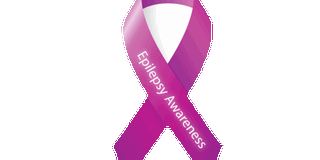Prime
Epileptic children not getting medication - report

Dr Kakooza said there is a need to step up improved emergency obstetric and postnatal care for our babies to prevent brain damage.
What you need to know:
- At the World Health Organisation estimated prevalence of 1.3 per cent, about 559,000 Ugandans are having epilepsy. Despite its debilitating effects, the condition can be brought under control with effective and uninterrupted treatment, according to doctors.
Up to seventy-five percent of epileptic children in rural areas are not getting medication, a shortfall underpinning exclusion, pain and high death risks among them, a study done in eastern Uganda indicates.
This information is contained in the report of a cohort study titled “Children with Cerebral Palsy (CP) in Uganda: Prevalence and Mortality” which was done among 41,319 children aged 2–17 years.
The report by researchers from Makerere University School of public health and Swedish Karolinska Institutet was released last Friday.
Epilepsy is one of the major ways CP -a neurological condition caused by brain damage before or at birth, which hampers movement and balance.
Dr Angelina Kakooza Mwesige, an associate Professor of Paediatrics and Child Health at Makerere University who was the co-principal investigator said they found children with CP are “25 times higher risk of death than in the general child population” when the children were followed from 2015 to 2019.
At the launch of the report in Kampala on Friday, Dr Kakooza said they found the prevalence of CP at 3 per 1000 children, which is higher than the prevalence of 2 per 1000 in the developed countries. Of those with CP, up to 35 per cent had epileptic seizures, according to the report.
“Cerebral malaria and seizures are the major cause of damage to the central nervous system in the survivors. The damage manifests as blindness, loss of balance, language regression, deafness and epilepsy,” she said.
At the World Health Organisation estimated prevalence of 1.3 per cent, about 559,000 Ugandans are having epilepsy. Despite its debilitating effects, the condition can be brought under control with effective and uninterrupted treatment, according to doctors.
Dr Carin Andrews, another researcher from Karolinska Institute, a medical university in Stockholm Sweden, said in the study in eastern Uganda districts of Iganga and Mayuge, said seventy-five per cent of the children with epilepsy were not getting life-saving medicine for the condition.
“This means the children had a lot of untreated epileptic seizures, causing a lot of pain for the children and a lot of discomfort which leads to children being excluded because children with epileptic seizures are very stigmatised,” she said.
Cause
Dr Carin said that when they asked the caregivers why they didn’t get care or medication, they cited hopelessness and lack of transport to go the hospital. The expert said there was a lack of knowledge about what causes the epileptic seizure and CP and where to go for help.
“Whenever we take her to hospital/clinics, we are always told that there is nothing much they can do to make her condition improve. I have given up any hope of her ever-improving; and we are just waiting for her to die,” the caregivers of a six-year-old girl in the study area told researchers.
Ms Sarah Nekesa, the Executive Director of the Epilepsy Association of Uganda said that many health centres around the country do not have drugs for epileptic patients who take them daily.
“Having epilepsy, drugs are your daily meal. Once you go off the drug, you will have adherence issues,” she said.
In recommendation, Dr Kakooza said there is a need to step up improved emergency obstetric and postnatal care for our babies to prevent brain damage.
"There is a need to develop simpler, culturally adapted strategies to address malnutrition among children with CP. There is also need for regular provision of simple preventive measures, such as the use of insecticide-treated mosquito nets to prevent malaria infections,” she said.
Dr Charles Ayoo Akiya, the commissioner of non-communicable diseases at the Ministry of Health, said they are working to address the problems.
“We are aware of the shortage of drugs in this country, especially for non-communicable diseases and epilepsy is one of them,” Akiya said. He said there is need for increasing funding and focusing the fight towards non-communicable diseases, which now accounts for 41 per cent of annual deaths in the country.




